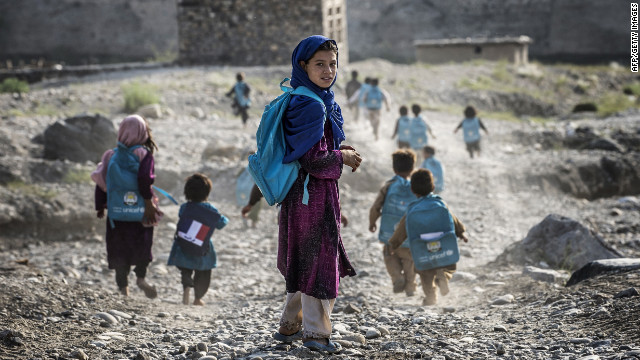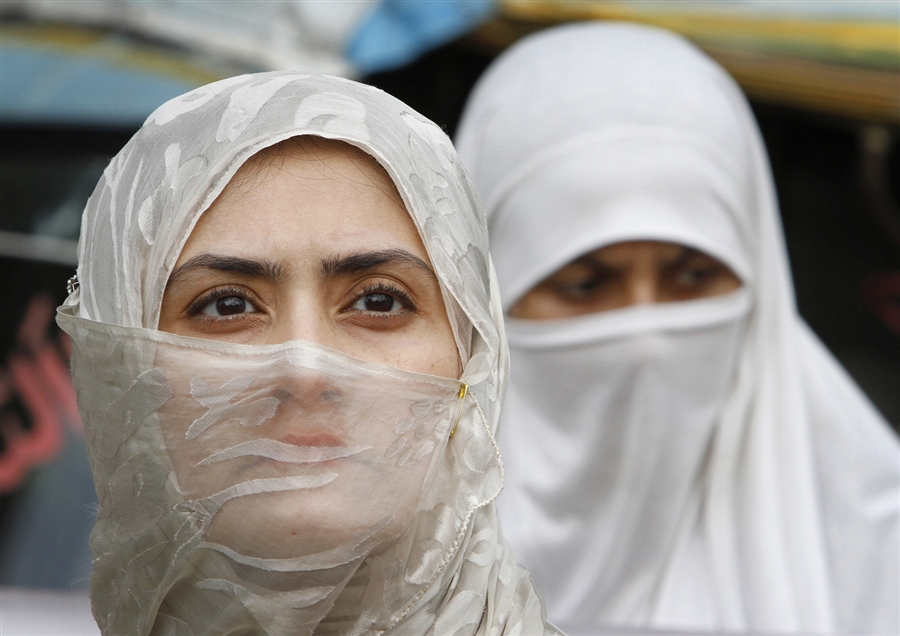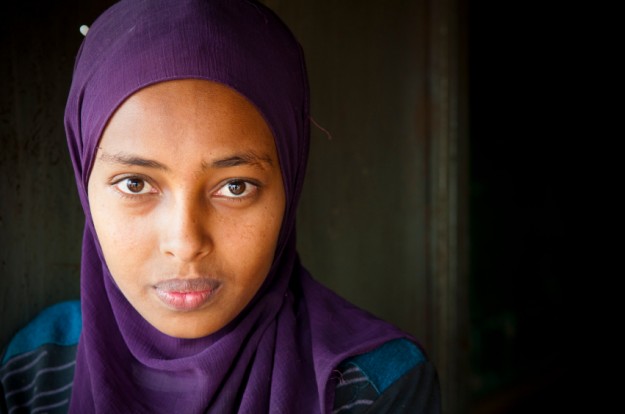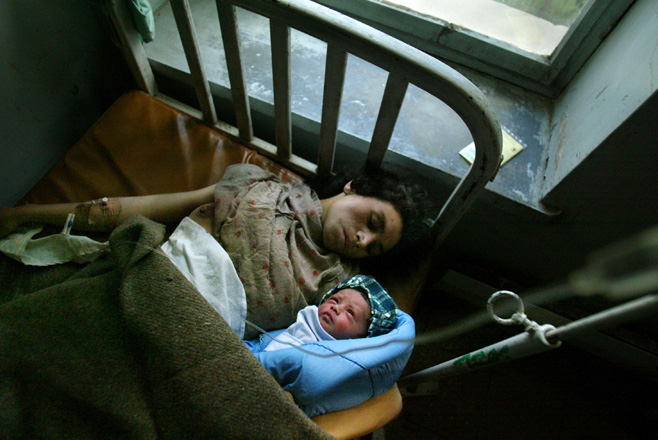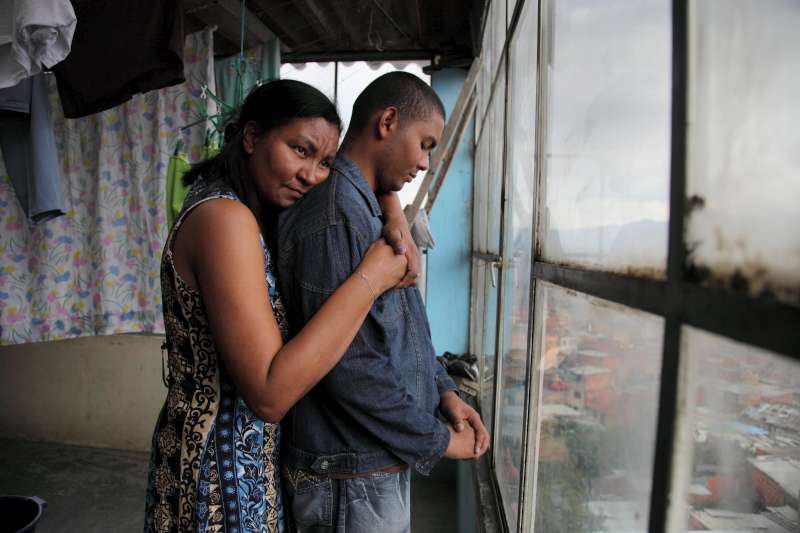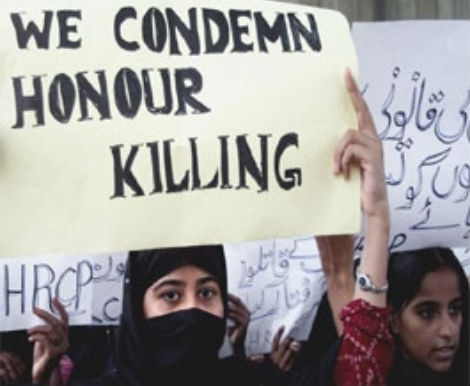14 Laws And Restrictions For Women Around The World
In celebration of International Women's Day, we take a look at the laws women in countries across the world face.
1. From infancy to age 15, young girls are forced to undergo female genital mutilation in 29 countries in Africa and the Middle East
From infancy to age 15, young girls are forced to undergo female genital mutilation in 29 countries in Africa and the Middle East
Image via ghadinews.netAn estimated 125 million girls and women alive today have been cut in 29 countries in Africa and the Middle East. FGM cause severe bleeding and health issues including cysts, infections, infertility as well as complications in childbirth increased risk of newborn deaths. FGM is a violation of the human rights of girls and women.
un.orgFemale genital mutilation (FGM) includes procedures that intentionally alter or cause injury to the female genital organs for non-medical reasons. FGM has no health benefits, and it harms girls and women in many ways. It involves removing and damaging healthy and normal female genital tissue, and interferes with the natural functions of girls' and women's bodies.
2. Girls are denied education in Afghanistan
30 percent of girls have access to education in Afghanistan
afghan-web.comThere are many reasons why families do not allow their daughters to continue their education after finishing secondary school: some are concerned about security, but some girls are forced to leave school due to discriminatory traditions, or because they are married off by their families.
irinnews.orgThere were at least 185 documented attacks on schools and hospitals in Afghanistan last year, according to the United Nations, and the majority of those attacks were attributed to armed groups opposed to educating females. But "the walk from home to school is -- and has always been -- the most dangerous part," Arbabzadah said. "You are told to stay covered, keep your head down and walk quickly ... and stare at your toes."
cnn.com3. Most girls are forced to marry men they don't know before they turn 18 in Yemen
Most girls are forced to drop out of school and marry men they don't know before they turn 18 in Yemen
Image via presstv.irChild marriage is a major problem in Yemen, where according to UN and Yemeni government data from 2006, 52 percent of girls are married – often to much older men – before age 18, and 14 percent before 15.
If the girls don’t want to marry, their families generally force them. Girls who marry often drop out of school, are more likely to die in childbirth, and face a higher risk of physical and sexual abuse than women who marry at 18 or later. Until now, Yemen has been one of the few countries in the region without any minimum age for marriage.
4. Women are not allowed to go shopping without a male relative in Pakistan
Islamic clerics and tribal elders in Pakistan's north-west Khyber Pakhtunkhwa province have barred women from shopping without a male relative. The step is reportedly aimed at keeping men from being distracted during the holy month of Ramadan. It is not clear whether it will be lifted when it ends.
"We have decided that women will not visit bazaars without a male relative," the cleric, Maulana Mirzaqeem, was quoted as telling AFP news agency. "Those who will visit markets without male relatives will be handed over to police. "They spread vulgarity and spoil men's fasting in Ramadan." The clerics have requested police help enforce their ban and called on shopkeepers not to serve unaccompanied women.
5. Women are still not allowed to drive in Saudi Arabia (despite Saudi women fiercely challenging the ban)
6. Women are not allowed to leave the house without their husband's permission in Yemen
Women are not allowed to leave the house without their husband's permission in Yemen
Image via yandex.ruYemen, where this law remains in force, does allow for a few emergency exceptions, Begum says: if the woman must rush out to care for her ailing parents, for instance.
washingtonpost.com7. Women are still not allowed to vote in Saudi Arabia and Vatican City
This is amazingly the case in Saudi Arabia, though a royal decree, issued in 2011, will let women vote in Saudi elections in 2015. Vatican City is the only other country that allows men, but not women, to vote.
washingtonpost.com8. Working women earn less than men of the same qualification in the US
Among recent college graduates, full-time working women on average earn 82% of what their male peers earn, according to a study released todayby the AAUW (American Association of University Women). The report is based on 2009 U.S. Department of Education statistics.
If a young man and woman fresh out of college with the same degree walk into a large firm, typically, the man can get placed in higher-wage jobs than the woman, says Heidi Hartmann, president of the Institute for Women's Policy Research.
9. Women are not allowed to serve in frontline combat in UK, Turkey and Slovakia
Out of the 28 countries that make up NATO, the UK, Turkey and Slovakia are the only still barring women from serving in frontline combat roles. Earlier this month Jim Murphy, the former Shadow Defence Secretary, voiced his support for females being allowed to serve on the frontline.
telegraph.co.uk10. Women are not allowed to own land without co-signing with a man in Lesotho
Women are not allowed to own land without co-signing with a man in Lesotho
Image via landportal.infoIn some countries, including the African nation of Lesotho, women are unable to own land or disadvantaged in legislation regarding inheritance rights. In Lesotho, a woman can have no independent ownership to land or property without co-signing with a man -- usually a husband or father. Such limited rights mean that women stay in abusive relationships at the risk of losing their property and widows can lose their own homes when their husbands pass away.
11. Female rape victims can be convicted for adultery and prostitution in Ethiopia
Female rape victims can get convicted for adultery and prostitution in Ethiopia
Image via whatweekly.comAn Ethiopian woman who says she was gang-raped in Sudan has been convicted of "indecent acts".
The woman was sentenced to a one-month jail term but this was suspended because she is pregnant, her lawyer, Samia al-Hashmi, told the AFP news agency. She was also fined 5,000 Sudanese pounds ($880; £530). She had also faced charges of adultery and prostitution, which could have led to a penalty of death by stoning, but these were dropped after she convinced the court she was divorced, reports SIHA.
12. 87% of women in Afghanistan admit to experiencing domestic violence
Domestic violence is so common that 87 per cent of women admit to experiencing it. But more than one million widows are on the streets, often forced into prostitution. Afghanistan is the only country in which the female suicide rate is higher than that of males.
13. Married women in Mali finally have the right not to obey their husbands after a new family law was passed in 2009
Married women in Mali finally have the right not to obey their husbands after a new family law was passed in 2009
Image via unhcr.orgA new family law in Mali is causing a furore, partly because it no longer stipulates that wives have to obey their husbands. Mali's current law specifically states that a wife must obey her husband, and that is the way things should stay says Mahmud Dicko, president of Mali's High Islamic Council.
In some parts of the world, article 312 of the new family law would seem inoffensive enough.
The article says that, once married, husbands and wives owe each other "loyalty, protection, help and assistance".
14. Women can be killed if they are suspected to have communication with a man outside of wedlock In Pakistan
The code is simple: Any contact, even just communication between a man and a woman outside of customary wedlock is considered a breach of the honour of the woman's family, and gives it the right to seek bloody revenge. The woman's family must first kill her and then go after the man.
The mere expression of suspicion by the woman's family is enough evidence and the community demands no further proof. Once such a suspicion has been expressed, local custom prevents the family of the man killed in this way from avenging his death or reporting it to the police. By their very nature, "honour killings" are particularly difficult to prove or to prosecute. There are frequently no witnesses to the crime and little motivation for the police to pursue any suspects, irrespective of the evidence.

